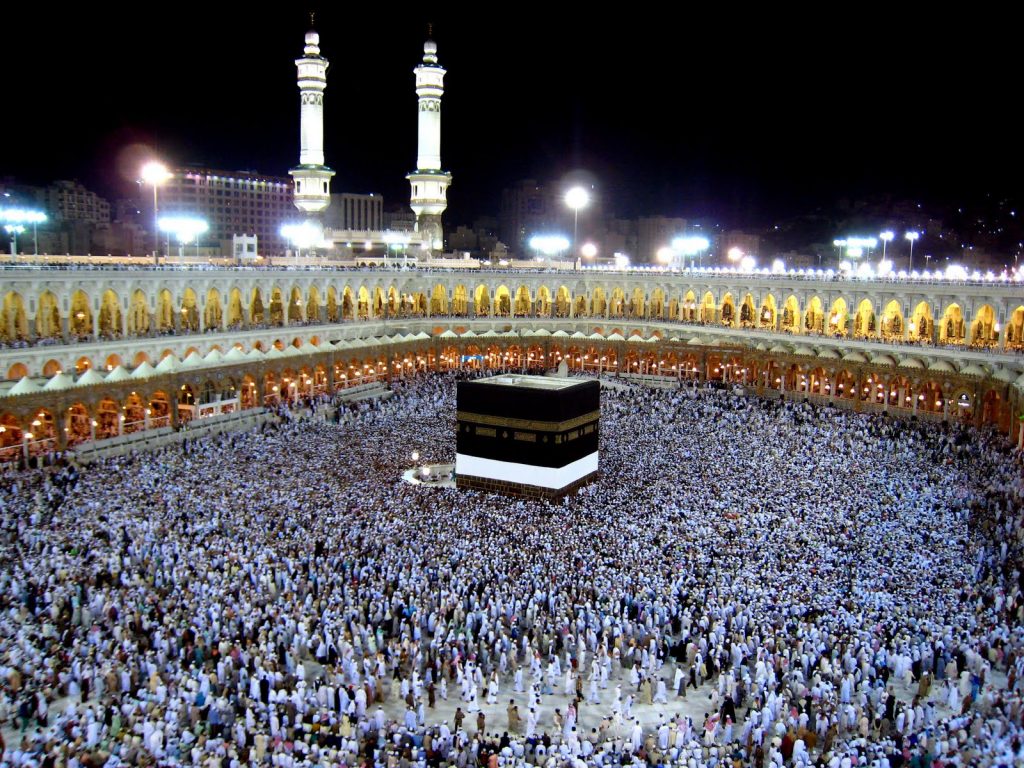Hajj is one of the Five Pillars of Islam and is considered a fundamental aspect of the Muslim faith. It is a pilgrimage to Mecca that Muslims are required to make at least once in their lifetime if they are able to do so financially and physically. The Hajj is a time of reflection and devotion and is seen as a way to connect with the wider Muslim community.
The Hajj is a mandatory religious duty for Muslims that must be carried out at least once in their lifetime by adult Muslims who are financially and physically capable of undertaking the journey and can support their family during their absence. It is one of the Five Pillars of Islam, alongside Shahada, Salah, Zakat, and Sawm.
The Hajj takes place during the Islamic month of Dhu al-Hijjah and is a series of rituals that are performed over a period of five days. The Hajj begins with the intention, or niyyah, to perform the pilgrimage and ends with the farewell tawaf, or circumambulation of the Kaaba.
The first day of the Hajj is known as the day of tarwiyah, where the pilgrims travel to the tent city of Mina. The second day is known as the day of ‘Arafat, where the pilgrims travel to the plain of ‘Arafat and stand in prayer and reflection. The third day is known as the day of al-Mash’ar al-Haram, where the pilgrims travel to the plain of Muzdalifah and collect pebbles to use in the ritual of stoning the devil. The fourth day is known as the day of Eid al-Adha, where the pilgrims return to Mina and sacrifice an animal in commemoration of the sacrifice made by Ibrahim. The fifth and final day is known as the day of tashriq, where the pilgrims return to Mecca and perform the farewell tawaf.
The Hajj is a time of unity and equality, as all pilgrims wear the same simple white garments, known as ihram, to symbolize their equality before God. It is also a time of forgiveness and purification, as the Hajj is seen as a way to erase past sins and start anew.
The Hajj is not only a religious experience, but it is also a cultural and social one. The Hajj brings together Muslims from all over the world, regardless of race, ethnicity, or social status, to perform the same rituals and connect with one another. It is a time of shared experiences and shared memories, and it helps to strengthen the bonds of the global Muslim community.
The Hajj is also an important economic activity and brings significant income to the Saudi government and local businesses. However, it is also been reported that the large number of pilgrims during the Hajj season can also cause strain on resources and infrastructure.
In conclusion, the Hajj is a mandatory religious duty for Muslims that is considered a fundamental aspect of the Muslim faith. It is a time of reflection and devotion and is seen as a way to connect with the wider Muslim community. The Hajj is a time of unity, equality, forgiveness, and purification. It brings together Muslims from all over the world, regardless of race, ethnicity, or social status, to perform the same rituals and connect with one another. It also has a significant economic impact and cultural significance. The Hajj is a unique and powerful experience that can change the life of a person who performs it.

